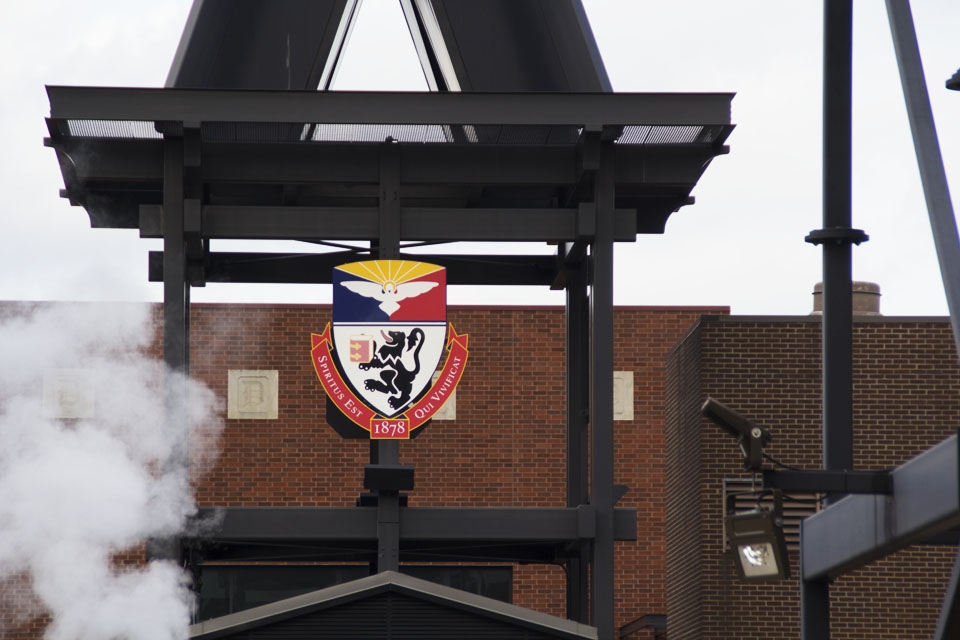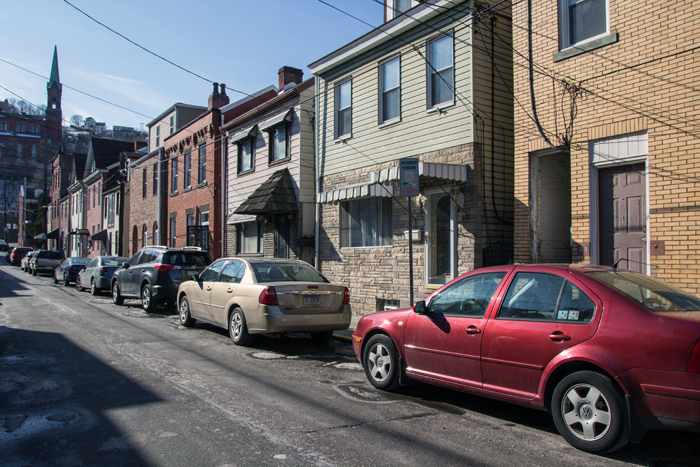
Krystina Primack | Staff Writer
10/12/17
Well, fellow Dukes, it’s that time of year again. The weather doesn’t know the meaning of consistency, pumpkin-spice mania has returned in full swing and, most prominently, Duquesne’s newest students have been set free on campus, ready to explore, make friends and, of course, ace their classes.

According to its website, Duquesne University typically sees more than 300 transfer students per year.
I’m proud to say that I’m one of those new students — although not as a freshman but rather a transfer, one of many in the undergraduate population of this student body. In the weeks I’ve spent here so far, I’ve had the opportunity to make some observations and do a bit of research about this particular situation in which I and so many others find ourselves, namely, how exactly to go about being a transfer.
Making the move from a community college to a university is definitely significant, not only because it’s a huge accomplishment but also because they are two different animals. Being perfectly honest, it isn’t always easy. This is an amazing experience, but it’s certainly a surreal one at the same time that can be a bit overwhelming every once in awhile. But it is worth it, and it’s simple to get the hang of student life in this new environment with a little help. That said, here are a few tips to make the move go much more smoothly.
To begin, let’s discuss the merit of getting involved here at Duquesne. If you live on campus, your opportunities for socializing and student activities are automatically increased. But transfer students, like commuters, don’t have that advantage from the start. A great way to combat this dilemma and make friends is to get involved with campus life. Join a club or volunteer society. Their doors are always open, even now that the EXPO has long passed. Duquesne has a diverse range of clubs, sports and activities available to students of every background, and members of those clubs are more than happy to see others showing an interest. Whether you’re an introvert, an extrovert or somewhere in between, there is likely an organization or two that will speak to your interests.
Even just browsing a bulletin board can provide a wealth of information about what’s happening on campus. But if you’ve missed any flyers, getting involved is still as easy as visiting the Campus Link page from your DORI account and exploring. From there, it’s easy to see what this university has to offer, such as the many organizations dedicated solely to student activities and involvement.
One such organization is the Center for Student Involvement (CSI) located in room 305 of the Duquesne Union.
“The [organization] is comprised of Co-Curricular Community Engagement, Commuter Affairs, Greek Life, Student Organization Services and Programs & Leadership and also coordinates the services and programs for recognized student groups,” said Marc Grandillo, Director for Programs & Leadership in the CSI.
“Our department strives to provide resources and opportunities for all Duquesne students to get involved on campus, regardless of class year or status. Whether a student is interested in joining a student organization, pursuing a campus leadership role, has questions about commuting to campus or becoming more engaged in the local community, we encourage students to connect with us,” Grandillo continued.
So no matter what you choose, getting involved in the many aspects of Duquesne’s student life is a great way to settle in, meet new people and have fun, making the adjustment from college to university that much better.
Aside from fun and socialization, there are also more serious matters to attend to on a regular basis, such as utilizing the resources available to us.
One of many valuable resources is the presence of our academic advisers and the significance of their roles in our lives as first-year transfer students. Like all students, transfer students come from diverse backgrounds, but unlike new freshmen, we have a bit more experience under our belts, which is certainly a positive thing. We’ve participated in campus life already to a certain extent — whether at community colleges or other universities — and for the most part, we know the ropes. We’ve learned from our mistakes and have taken the sagely advice from those that came before us. It’s more than likely that we have a better idea, if not a concrete plan altogether, of what we intend to do after graduation.
But it’s also not uncommon to feel like a fish out of water and more than a little bit lonely regardless of everything we’ve experienced elsewhere. Because, let’s face it: We don’t know everything. Our academic advisers, on the other hand, pretty much do.

The Commuter Center is a popular hang out spot for transfer students who do not live on campus.
It’s easy to forget that it’s perfectly acceptable to see them for reasons beyond building the ideal schedule for the coming semesters. Part of what makes them great resources is right there in their title: Academic advisers advise. They can help put our stress, fear and confusion into perspective and often have solutions to our problems that we might not have considered yet. We simply need to utilize opportunities to make (and keep) appointments.
As Bill Klewein of the McAnulty College and Graduate School of Liberal Arts said, reaching out to your advisors provides “a time to revisit some of the policies and procedures that would be new to a transfer student.”
“Transfer students often come to Duquesne with a basic understanding of how colleges work, so to speak, but sometimes need additional guidance when it comes to accomplishing familiar tasks in a new setting,” Klewein explained. “From the adviser’s perspective, the registration period provides a good opportunity to check in, to make sure that the semester is going well, that the student is adjusting to life on the Bluff and how classes are going.”
Klewein also stressed the importance of utilizing the resources that your advisers can provide.
“Advisors have extensive experience in working with the requirements of their respective academic program,” he said. “They know how and where a student’s academic program intersects with core requirements. They can often suggest ways that students might be able to get the most out of their time in the classroom at Duquesne.”
So check in with your academic adviser every now and again. They’re happy to help, and they know their stuff.
Between visits to your adviser, remember that another aspect of settling in is making yourself feel at home.
According to Timothy Lewis, Director of the Office of Commuter Affairs, which can be found in room 115 of the Duquesne Union, “Duquesne is unique in that we have an entire office designed specifically to assist, support and provide opportunities for commuter students … The Commuter Affairs staff does everything possible to help undergraduate freshmen and transfer commuting students become active students on campus.”
For example, the first floor of the student union has a lounge with facilities for meal preparation that commuter students can use. Lewis explained that Commuter Affairs also offers “exciting programs and activities [that] are always occurring in the Commuter Center, and most of our commuter students make this their ‘home’ while at Duquesne.”
Having these resources available to students that don’t live on campus makes student life that much easier because it means more worries are taken off our hands on a daily basis.
Commuter Affairs also aids new students with settling in by providing Commuter Assistants.
“[They] are upperclassmen commuter students who are selected on the basis of scholarship, leadership and experience,” Lewis said. “They serve as peer advisers, plan activities, provide information and assist new commuter students in their transition to Duquesne. Each new undergraduate commuter student (both freshmen and transfer students) has a CA for the entire fall semester.”
If you’re a transfer student, your CA will have been assigned to you, so remember to keep in touch with them this semester in order to make the most of your university experience. Like your academic adviser, your CA is here to help.
There’s no need to be afraid of this new thing called university life. By utilizing Duquesne’s resources and embracing its culture, transfer students may worry less about finding ways to fit into the new university dynamic and direct more of their energy to adjusting to the weather and finding the coffee shop with the best pumpkin spice latte.




